However, rain-exposed locations might develop slippery flooring owing to the growth of algae. In this circumstance, outdoor porcelain tile is a safe, attractive, non-slip, and durable alternative to natural stone pavers. Slips and falls are the most common sort of accident in the workplace, but they can also occur in and around the home. Having safe surfaces inside and outside the home must be a top safety priority. Manufactured porcelain tiles are created. This makes it much simpler to add slip-resistant surfaces to them. Texturing these surfaces prevents slipping. Ratings for anti-slip tiles are determined by the surfaces’ slide resistance. R-values are awarded to surfaces based on assessments of slipperiness. Frequently, porcelain tiles for outdoor use have an R11 resistance grade. 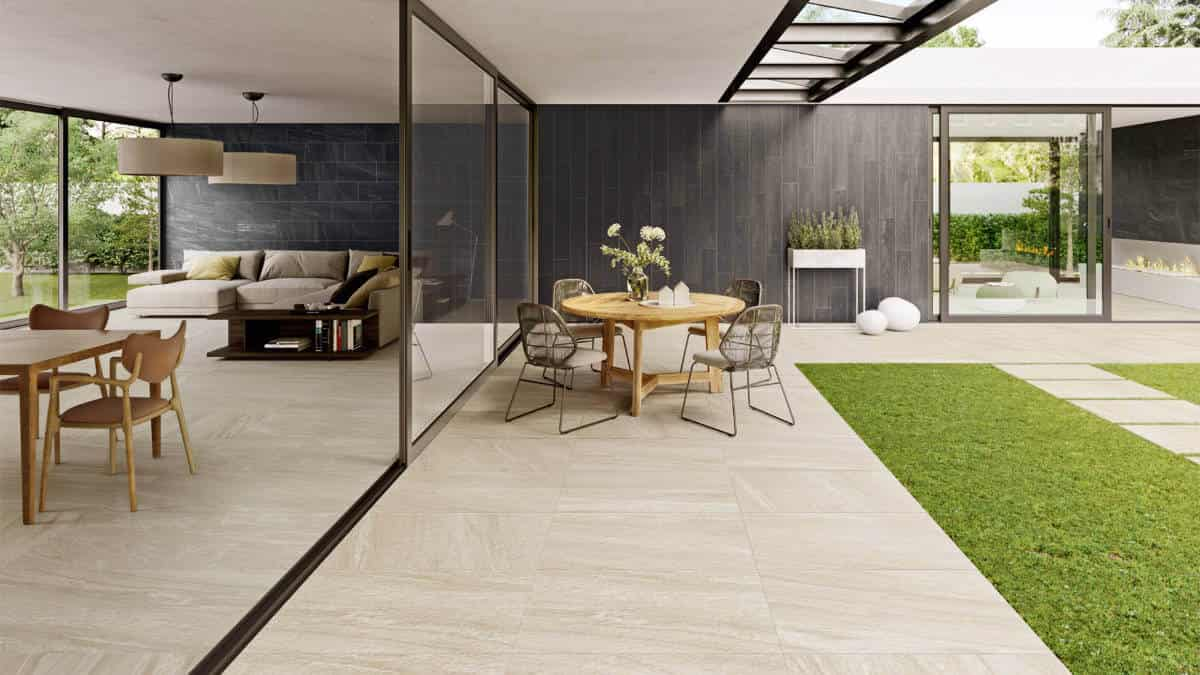 During the manufacturing process, the surface of these high-resistance porcelain tiles is given a special texture. This texture increases the slip resistance of each individual tile. Porcelain tiles are naturally water resistant. This makes them simple to maintain and clean; soap and warm water are sufficient. Thus, you can prevent the collection of debris or grime and help keep your tiles safe for walking. Porcelain tiles, unlike actual stone surfaces, are non-porous. Because they do not absorb moisture, algae and moss will not grow on them. This is a further factor that prevents porcelain tiles from becoming slippery. While porcelain tiles are a luxurious option for outdoor flooring, they are also an excellent long-term investment. They are non-slip and long-lasting. Outdoor porcelain tiles are resistant to scratches and easy to clean. They are resistant to stains and available in a range of designs. When picking materials for outdoor floor tiles, it is essential to examine not only aesthetic qualities but also, and probably most crucially, technical performance in order to choose those best suited and most practical to withstand even severe weather conditions. As a result, porcelain tiles, which are frost-resistant, resistant to unexpected temperature swings, and resistant to wear and tear, are the ideal material for use outside, in both private and public settings. To address the requirement for slip-resistance, which is crucial in outdoor applications, porcelain tiles with variable thicknesses and non-slip coatings with increasing friction degrees are available for outdoor applications. Due to the range of available alternatives, it is possible to create unique combinations of enclosed and open spaces, or to make outdoor areas a natural extension of interiors with aesthetic and stylistic consistency.
During the manufacturing process, the surface of these high-resistance porcelain tiles is given a special texture. This texture increases the slip resistance of each individual tile. Porcelain tiles are naturally water resistant. This makes them simple to maintain and clean; soap and warm water are sufficient. Thus, you can prevent the collection of debris or grime and help keep your tiles safe for walking. Porcelain tiles, unlike actual stone surfaces, are non-porous. Because they do not absorb moisture, algae and moss will not grow on them. This is a further factor that prevents porcelain tiles from becoming slippery. While porcelain tiles are a luxurious option for outdoor flooring, they are also an excellent long-term investment. They are non-slip and long-lasting. Outdoor porcelain tiles are resistant to scratches and easy to clean. They are resistant to stains and available in a range of designs. When picking materials for outdoor floor tiles, it is essential to examine not only aesthetic qualities but also, and probably most crucially, technical performance in order to choose those best suited and most practical to withstand even severe weather conditions. As a result, porcelain tiles, which are frost-resistant, resistant to unexpected temperature swings, and resistant to wear and tear, are the ideal material for use outside, in both private and public settings. To address the requirement for slip-resistance, which is crucial in outdoor applications, porcelain tiles with variable thicknesses and non-slip coatings with increasing friction degrees are available for outdoor applications. Due to the range of available alternatives, it is possible to create unique combinations of enclosed and open spaces, or to make outdoor areas a natural extension of interiors with aesthetic and stylistic consistency. 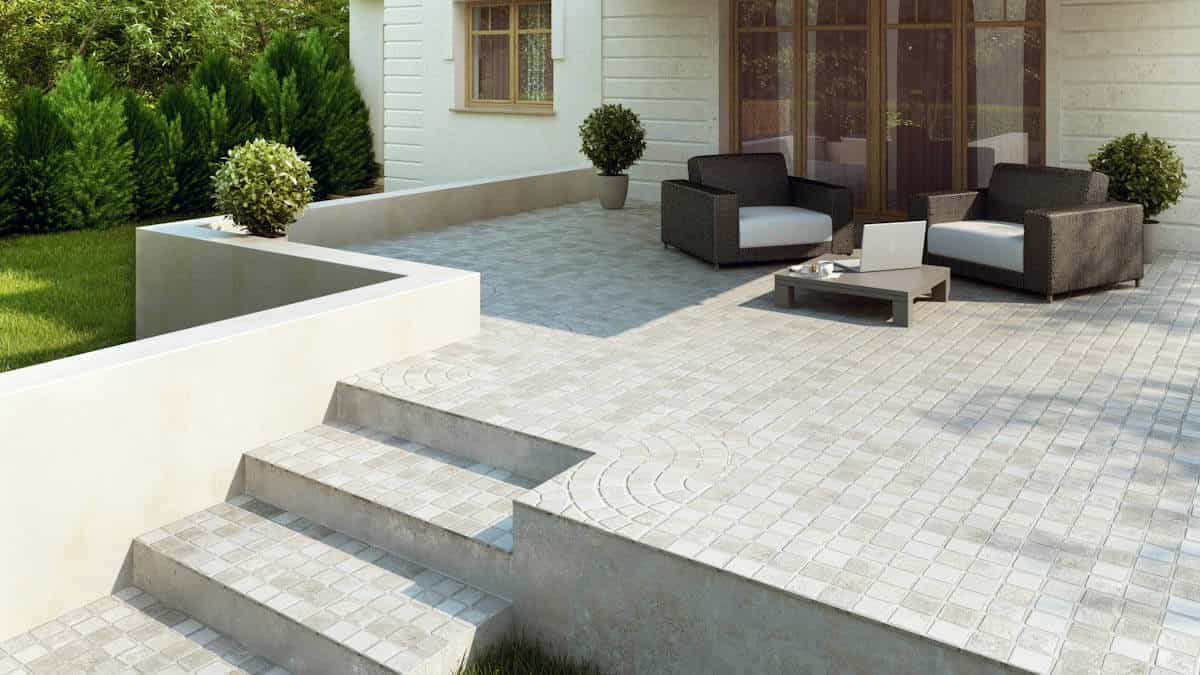
Porcelain outdoor tile
Porcelain tile is ideal for outdoor applications due to its extreme durability and longevity. On patios, natural stone or concrete slabs are widely utilized, although they require regular cleaning and sealing and may appear old. Porcelain is a great, durable, and contemporary alternative to conventional pavement materials. While porcelain is a great material for outdoor applications, not all porcelain tiles are suitable for outdoor use. Standard porcelain tiles with a thickness of 8-10 mm are not recommended for outside use due to their inability to withstand heavy furniture and harsh weather conditions. There are two different thicknesses for Interior-Outdoor tiles: 10mm for indoor use and 20mm for outdoor use. The 18mm to 20mm thickness range of Porcelain Paving makes it suitable for patios, driveways, and terraces. If you lay the same 10mm porcelain tile inside and outside, you will have to make a compromise; if it has enhanced slip resistance, the internal floor will be excessively rough and difficult to clean; if the tile has a lower slip resistance to facilitate internal cleaning, the exterior floor may be dangerously slippery. Traditional adhesive installation and self-leveling pedestals are two of the numerous anchoring options for porcelain tiles used outside. For a variety of reasons, porcelain tiles are an ideal material for outdoor applications: All porcelain tiles have an absorption rate of less than 0.5%, making them resistant to stains and elements. 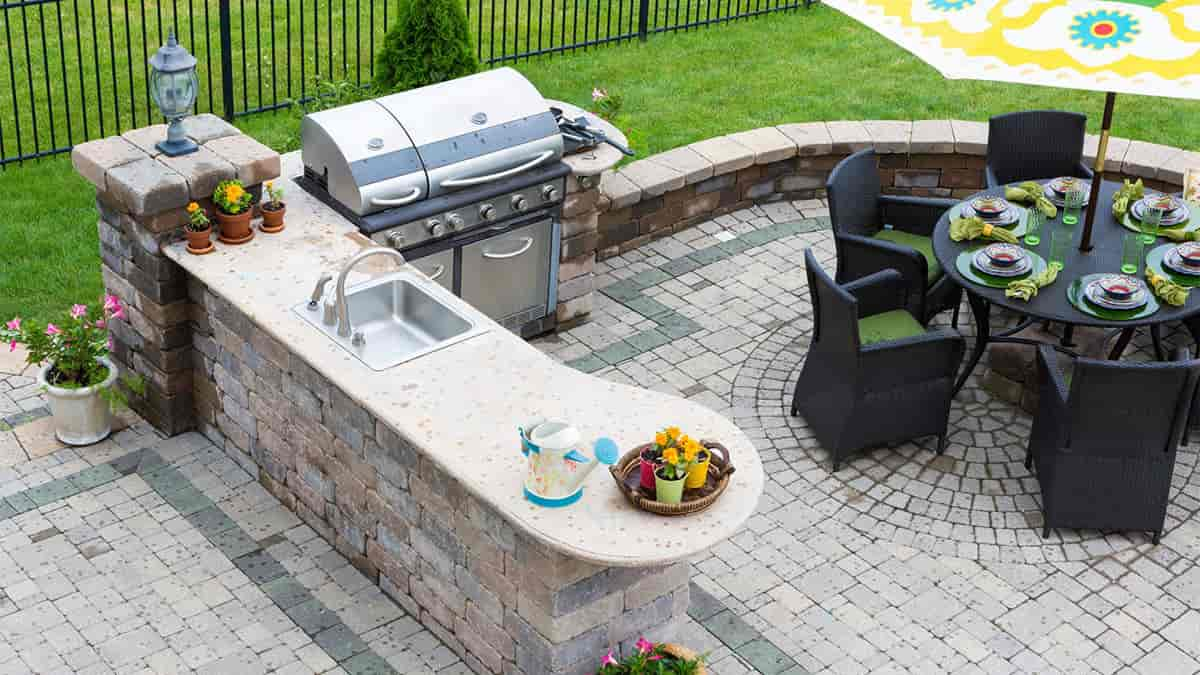 Unlike other materials, porcelain tiles will not crack in cold weather since they absorb almost no water. Even when exposed to direct sunlight, porcelain tiles are incredibly resistant to UV damage. Due to the manufacturing process, porcelain tiles are tougher and more durable than ceramics in high-traffic areas. Porcelain is not only great for patio pavement, but it is the perfect material for outdoor tiles, delivering everything you could want. Porcelain paving meets all requirements: it is durable, low-maintenance, and aesthetically beautiful. Porcelain is a good patio paving material due to its resistance to stains and its coarse texture. It is also resistant to a range of environmental conditions, which is arguably the most intriguing and significant feature. In addition to being resistant to fading and frost, they are also impermeable and extraordinarily water resistant, with an absorption rate of 0.05%. Due to their low porosity, they are basically impermeable, enhancing traction in wet conditions and protecting users from slip hazards. The water resistance also makes them a perfect surface for those who wish to complement their patio with a hot tub or pool. While the ability to wipe away stains makes them suitable for outdoor gatherings such as barbeques or drinks with friends.
Unlike other materials, porcelain tiles will not crack in cold weather since they absorb almost no water. Even when exposed to direct sunlight, porcelain tiles are incredibly resistant to UV damage. Due to the manufacturing process, porcelain tiles are tougher and more durable than ceramics in high-traffic areas. Porcelain is not only great for patio pavement, but it is the perfect material for outdoor tiles, delivering everything you could want. Porcelain paving meets all requirements: it is durable, low-maintenance, and aesthetically beautiful. Porcelain is a good patio paving material due to its resistance to stains and its coarse texture. It is also resistant to a range of environmental conditions, which is arguably the most intriguing and significant feature. In addition to being resistant to fading and frost, they are also impermeable and extraordinarily water resistant, with an absorption rate of 0.05%. Due to their low porosity, they are basically impermeable, enhancing traction in wet conditions and protecting users from slip hazards. The water resistance also makes them a perfect surface for those who wish to complement their patio with a hot tub or pool. While the ability to wipe away stains makes them suitable for outdoor gatherings such as barbeques or drinks with friends. 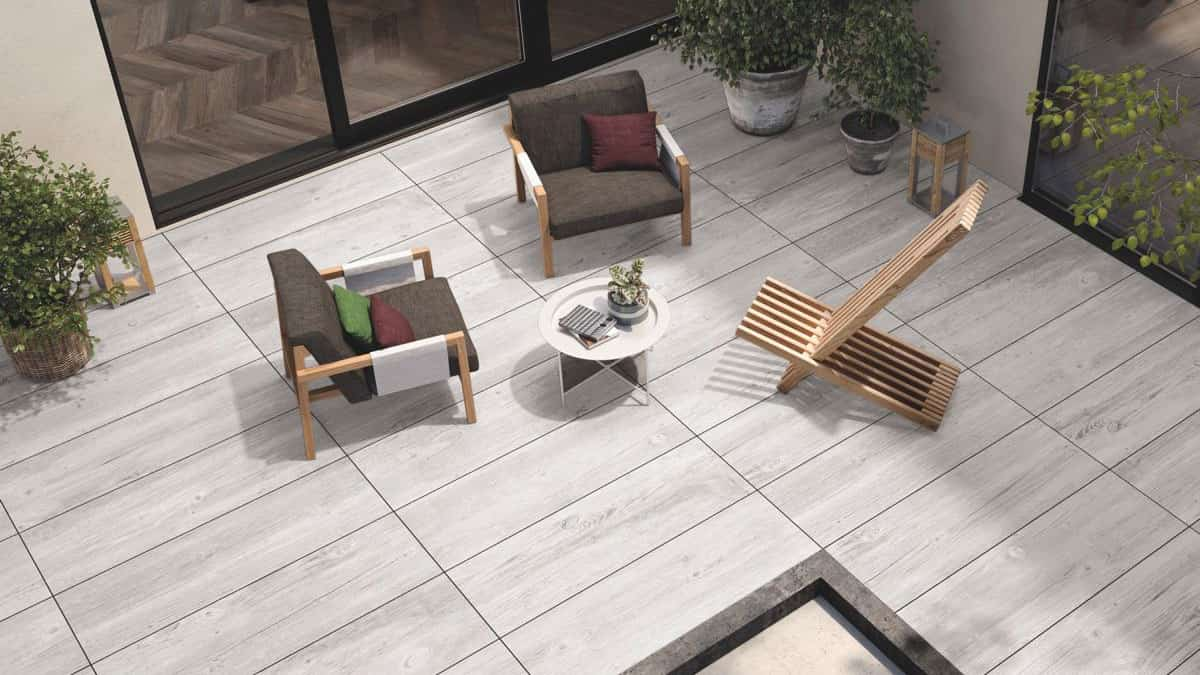
outdoor tile flooring non-slip
The porcelain tile which is used for outdoor flooring is absolutely non-slip. Similar to natural stone or concrete, porcelain tiles can have a range of surface textures with varied levels of traction. All of our outdoor porcelain pavers have a texture and slip rating of R11 or above, which is equivalent to flamed granite. Because they are more robust and long-lasting than pavers, tiles are an ideal surface for outdoor spaces such as decks and patios. There are several types of outdoor tiles, but they are all attractive and sturdy enough for outdoor use. Understanding some of the most prevalent outdoor tile selections may assist you in selecting the optimal deck or patio surface material. Porcelain tiles are utilized in more than simply restrooms. Decks and patios are good locations for outdoor porcelain tiles built for outdoor use. These tiles made from clay are impermeable, fade-resistant, and incredibly durable. As a result of being baked in blazing-hot kilns, unlike stone tiles, porcelain tiles do not fracture in adverse conditions. Consequently, they are an ideal option for residences in cities with excessively hot summers and severely cold winters. Given that porcelain tiles are most typically seen in bathrooms, it should come as no surprise that they repel water. Outdoor porcelain tiles will never absorb water, even in heavy rain. This also prevents them from cracking in cold situations. 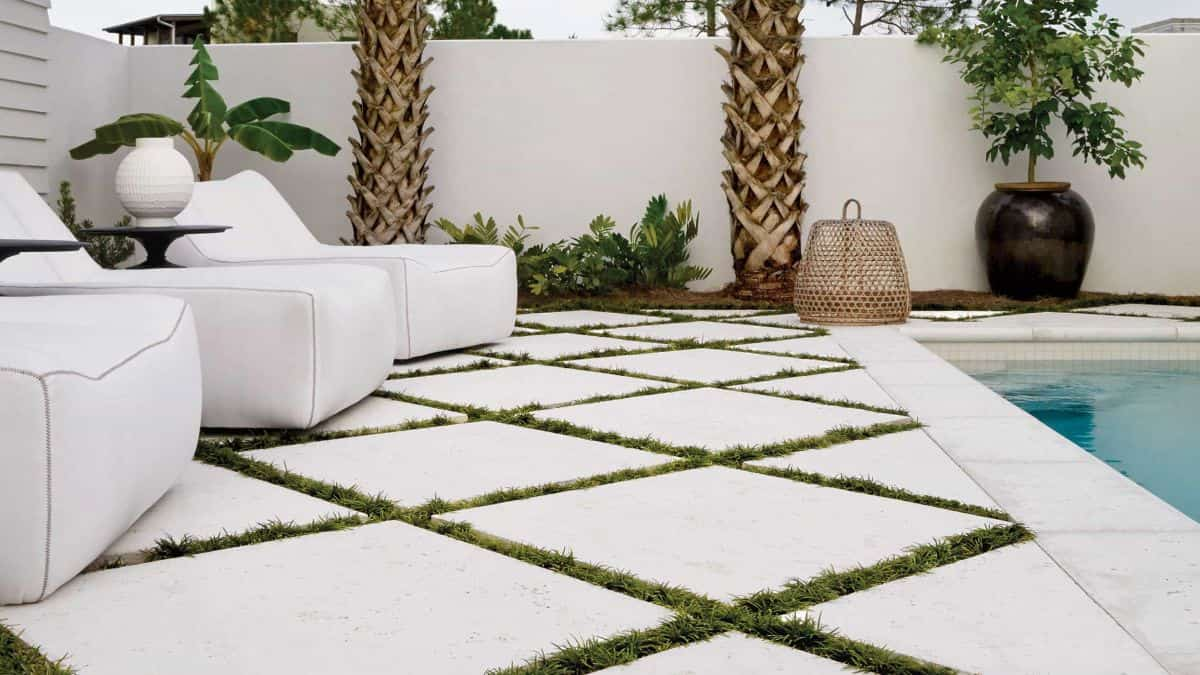 Because porcelain tiles are impermeable, they require less maintenance. If there are any spills, simply sweep them up and wash them with a towel and soapy water. Additionally, porcelain tiles are visually beautiful. They are available in a variety of hues and patterns, including tiles that resemble natural stone, wood, and concrete. However, porcelain tiles that have been polished can be slippery, especially when wet. Choosing porcelain tiles with a matte surface will increase traction and reduce the risk of slips and falls. The most slip-resistant porcelain tiles are suggested for outdoor use. However, the more abrasive the porcelain tile, the more challenging it will be to keep cleanliness. The R grade of a tile indicates the slipping resistance it provides. There are tiles with anti-slip ratings ranging from R9, which provides a modest degree of slip resistance for residential use, to R13, which provides the highest level of resistance for commercial uses. These ratings may assist you in determining whether or not a given tile is suitable for your use. R12 is the minimal slip rating recommended for tiles used in commercial, industrial, and public settings, as well as any other application where tiles are required for a sloped surface. A R13 anti-slip rating indicates that the selected tile is extremely slip-resistant. These multipurpose, extra-grippy R13 tiles may be found in high-traffic locations such as gym showers and swimming pool edging.
Because porcelain tiles are impermeable, they require less maintenance. If there are any spills, simply sweep them up and wash them with a towel and soapy water. Additionally, porcelain tiles are visually beautiful. They are available in a variety of hues and patterns, including tiles that resemble natural stone, wood, and concrete. However, porcelain tiles that have been polished can be slippery, especially when wet. Choosing porcelain tiles with a matte surface will increase traction and reduce the risk of slips and falls. The most slip-resistant porcelain tiles are suggested for outdoor use. However, the more abrasive the porcelain tile, the more challenging it will be to keep cleanliness. The R grade of a tile indicates the slipping resistance it provides. There are tiles with anti-slip ratings ranging from R9, which provides a modest degree of slip resistance for residential use, to R13, which provides the highest level of resistance for commercial uses. These ratings may assist you in determining whether or not a given tile is suitable for your use. R12 is the minimal slip rating recommended for tiles used in commercial, industrial, and public settings, as well as any other application where tiles are required for a sloped surface. A R13 anti-slip rating indicates that the selected tile is extremely slip-resistant. These multipurpose, extra-grippy R13 tiles may be found in high-traffic locations such as gym showers and swimming pool edging. 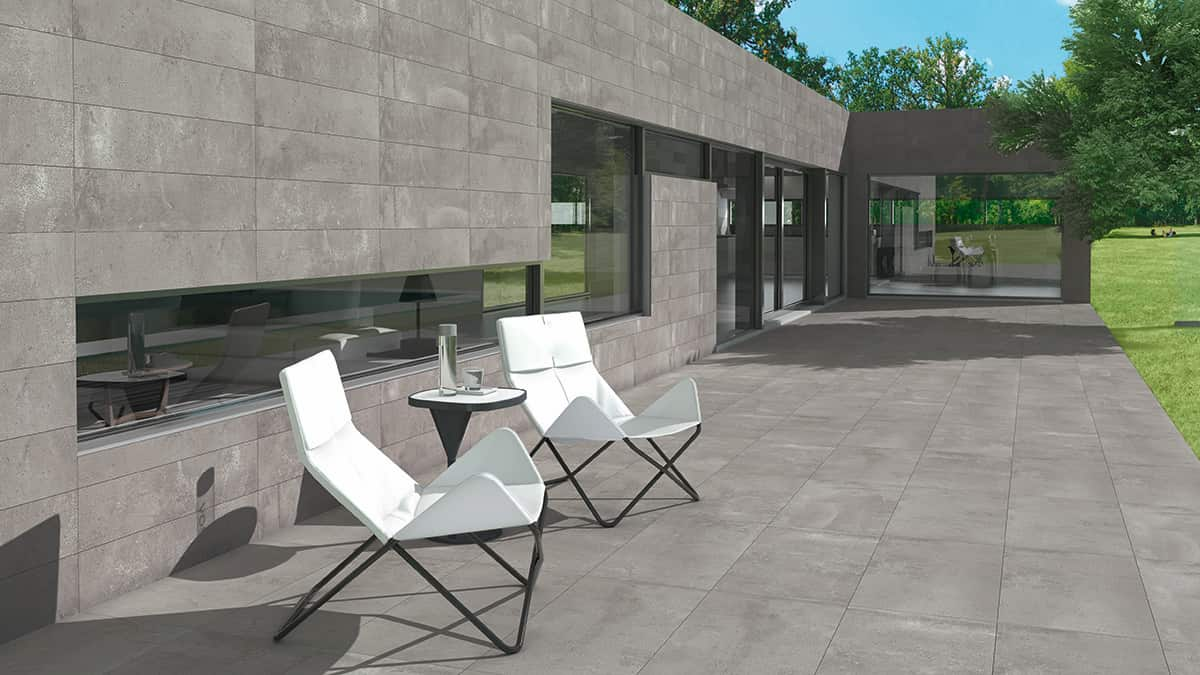
Porcelain outdoor tile flooring
However, while renovating your outdoor flooring, you might choose porcelain tile as an alternative material. In this context, porcelain pavers can also refer to porcelain outdoor patio tiles. Porcelain is a strong and durable ceramic material that is utilized in a variety of applications. However, when it comes to home renovations, porcelain tile is typically utilized. Because of their low water absorption rate, they are commonly used in bathrooms. When constructing or renovating a patio, use outdoor porcelain tiles. Verify that the porcelain tiles are sufficiently thick and approved for outdoor use before placing them as flooring. These types of tiles can offer a variety of benefits, which we will cover in further detail momentarily. One advantage of selecting porcelain tiles is the variety of styles available. With so many options available, you have ample chance to experiment with various patio design designs. Even other materials, such as stone or wood, may be imitated with porcelain. In the past, outdoor porcelain tiles were much more expensive; however, as man-made porcelain tiles for outdoor installations have grown in popularity, the price of outdoor porcelain tiles has reduced in recent years. The fact that porcelain is lightweight adds to its value. This means that it will be less expensive to transport and easier to assemble than alternatives such as a concrete paver patio. Additionally, porcelain is a durable and sturdy material. This is true even in high-traffic areas such as patios, where porcelain tiles must resist a great deal of foot activity. This suggests that typical usage is unlikely to damage them. Even better, freezing and thawing porcelain will not cause it to break because it does not absorb much water. In other words, you should not be concerned about the cold weather. You need not spend a great deal of time or energy maintaining your porcelain tile patio, which contributes to its durability. Since porcelain patio surfaces absorb little water, they do not need to be sealed or resealed. In addition, this is useful for cleaning up spills and splashes, as porcelain is less likely to discolor when spills are carefully cleaned up. As a consequence, you may securely prepare food and serve beverages outside. This low water absorption rate offers still another benefit. Mold, mildew, and moss are less likely to be a problem with this material since no water is held within the pavers. Despite being resistant to moss, mold, and mildew, it is nonetheless simple to remove. 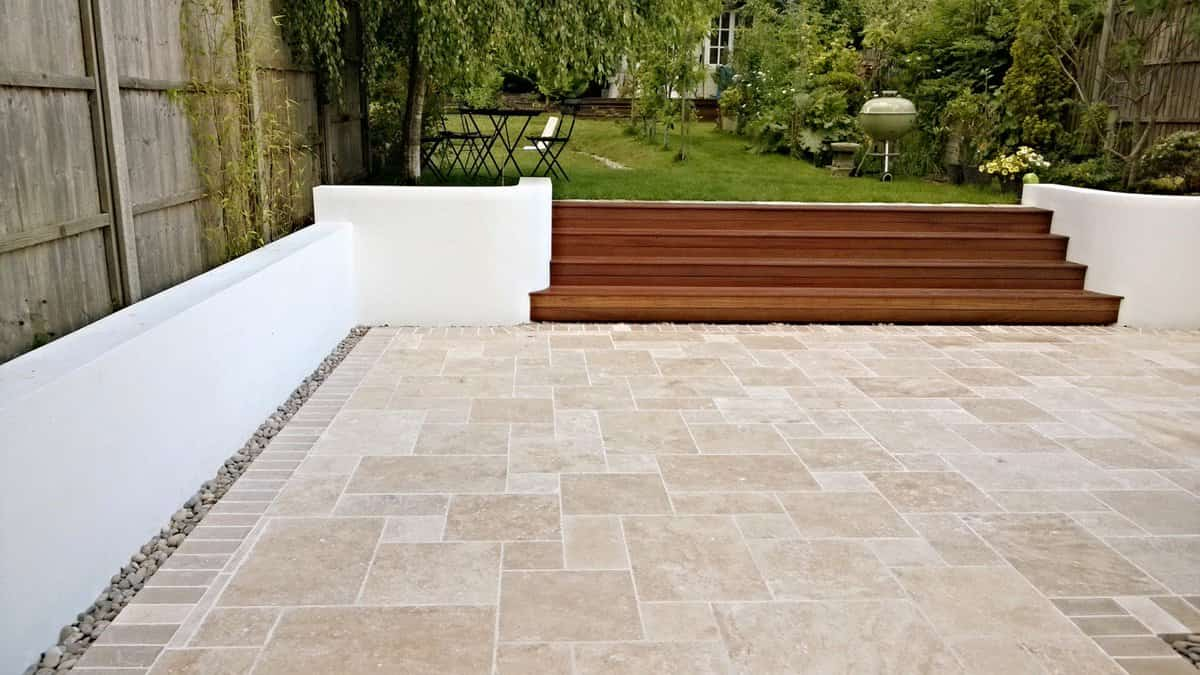
outdoor tile flooring
Compared to actual stone tiles, outdoor porcelain tiles are far less permeable for flooring than their natural counterparts. Porcelain is a type of ceramic tile distinguished by its strength, hardness, and even better water resistance than standard ceramic tiles, which are already quite durable. The reduced porosity of porcelain tiles is achieved by employing clays with finer particles that are fired at a higher temperature, resulting in a surface that is far less porous than any natural outdoor stone tile. Due to the manufacturing technique used to create porcelain tiles, this material may simulate a wide variety of other construction materials, including genuine marble, travertine, limestone, and even wood effect, with a fantastic natural appearance that can be difficult to distinguish from the real thing. Due to its adaptability, outdoor porcelain tiles provide a variety of advantages for outdoor use, including durability and design versatility. In contrast, porcelain tiles can be delicate and difficult to work with during installation. One of the key advantages of modern porcelain tiles is its ability to convincingly mimic conventional flooring materials such as marble, granite, wood, and even steel. One of their primary selling advantages is that it may be difficult to distinguish them from the real thing. Due to their density, outdoor porcelain tiles are more resistant to liquid penetration. The inherent stain and water resistance of porcelain contributes to its maintenance-friendliness. If necessary, spills may be readily cleaned up with a damp cloth. Porcelain tile surfaces are extremely simple to disinfect when necessary. 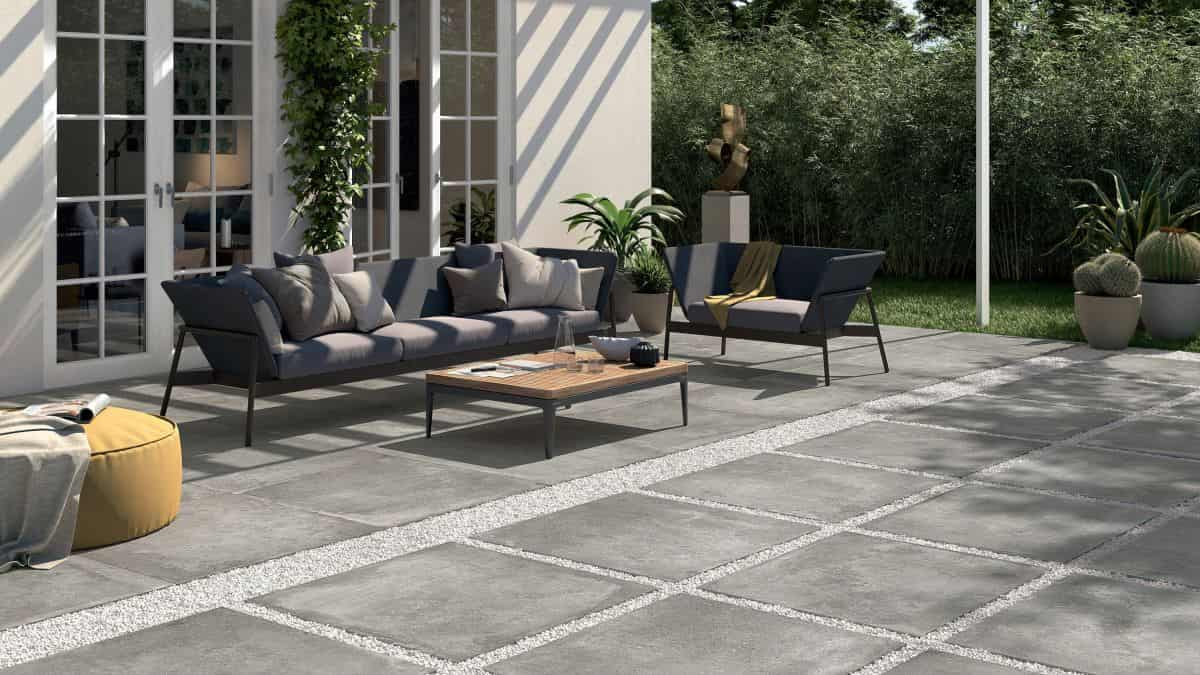 While outdoor porcelain tiles are usually resistant to stains, damage, and water penetration, they can be ruined if regularly exposed to corrosive substances like wine and acidic soft drinks. Mould and mildew can build up over time if harmful spills are missed and not cleaned immediately, and even if rain is not cleaned regularly, so a little care in the form of quickly cleaning these harmful spills and cleaning your outdoor porcelain tiles regularly will extend the life of their fantastic appearance. Outdoor porcelain floor tiles are among the most resilient flooring options available. Porcelain is strong, thick, and durable, and can withstand extreme weather conditions and temperature fluctuations. It may also be used in business situations. In general, all porcelain tiles intended for outside use should adhere to outdoor construction standards and be classified as outdoor tiles. This contains anti-slip certification in order to prevent unpleasant situations during usage. Never apply wall-grade porcelain or interior porcelain tiles for outdoor applications. If you have dealt with porcelain tiles before, there is no reason you cannot install your own porcelain outdoor floor tiles. As a result, you will have a trendy and long-lasting floor. Don’t forget to request free samples from our website for the best options accessible.
While outdoor porcelain tiles are usually resistant to stains, damage, and water penetration, they can be ruined if regularly exposed to corrosive substances like wine and acidic soft drinks. Mould and mildew can build up over time if harmful spills are missed and not cleaned immediately, and even if rain is not cleaned regularly, so a little care in the form of quickly cleaning these harmful spills and cleaning your outdoor porcelain tiles regularly will extend the life of their fantastic appearance. Outdoor porcelain floor tiles are among the most resilient flooring options available. Porcelain is strong, thick, and durable, and can withstand extreme weather conditions and temperature fluctuations. It may also be used in business situations. In general, all porcelain tiles intended for outside use should adhere to outdoor construction standards and be classified as outdoor tiles. This contains anti-slip certification in order to prevent unpleasant situations during usage. Never apply wall-grade porcelain or interior porcelain tiles for outdoor applications. If you have dealt with porcelain tiles before, there is no reason you cannot install your own porcelain outdoor floor tiles. As a result, you will have a trendy and long-lasting floor. Don’t forget to request free samples from our website for the best options accessible.

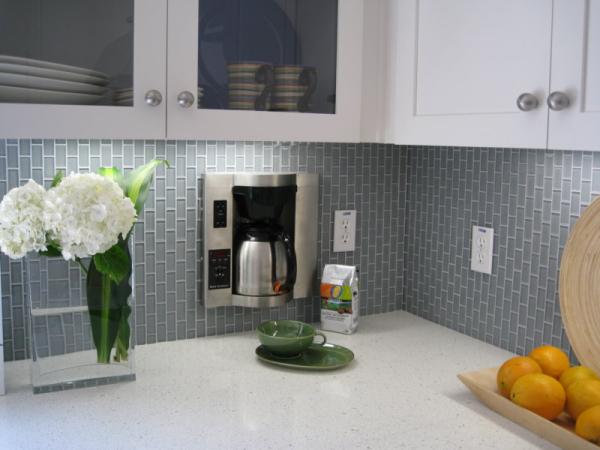
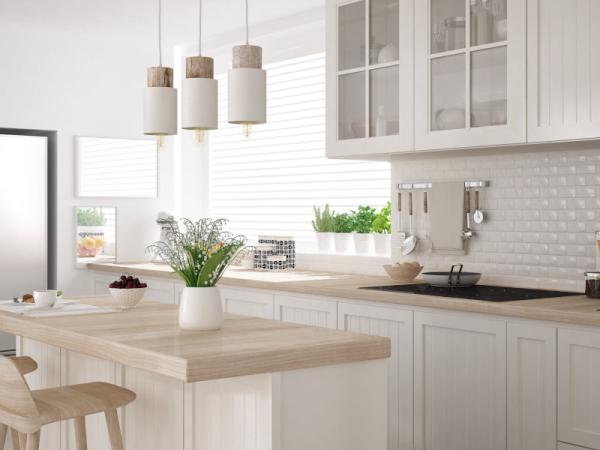
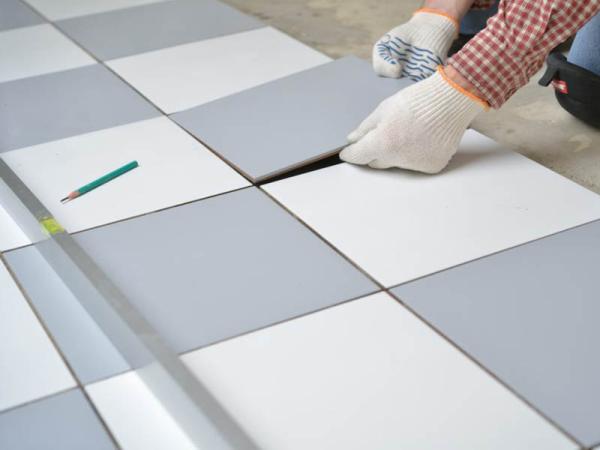
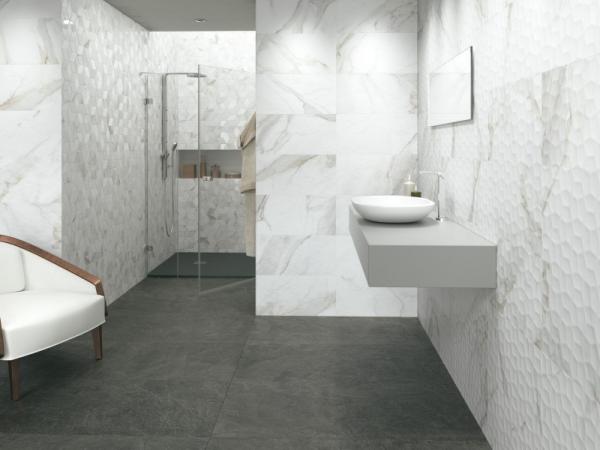
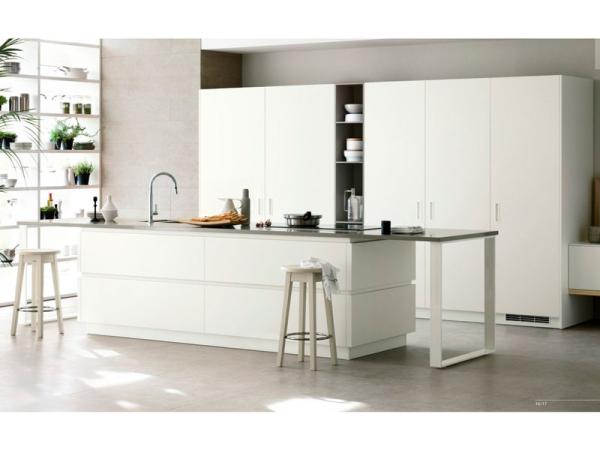
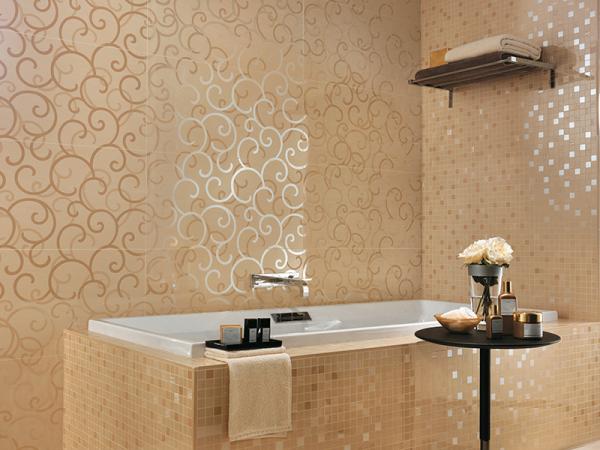
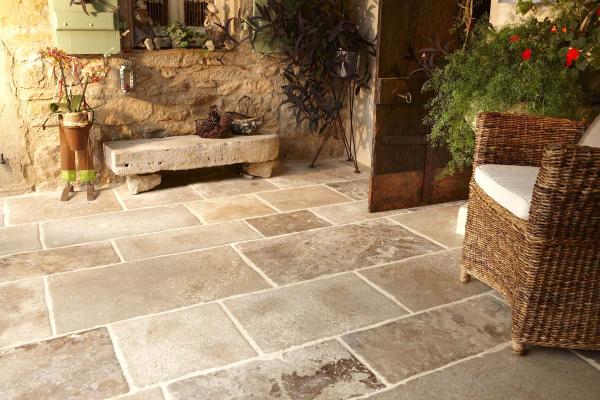
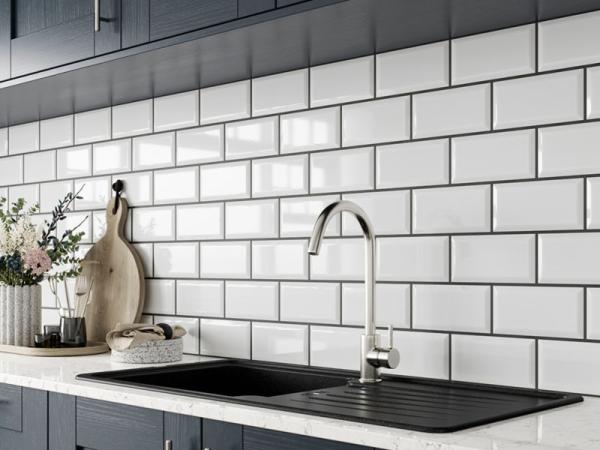
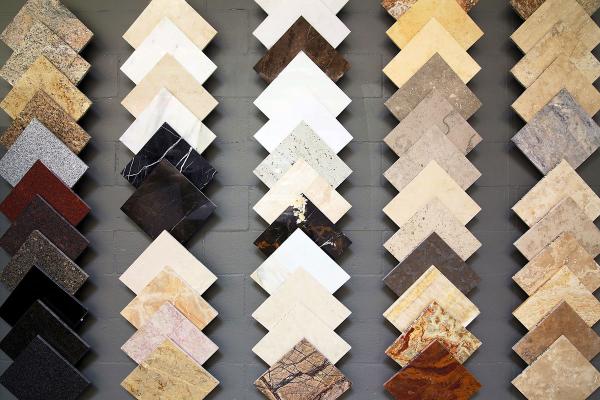
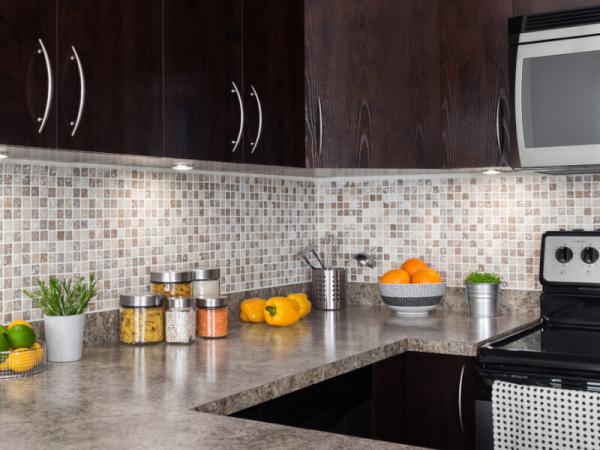
Your comment submitted.